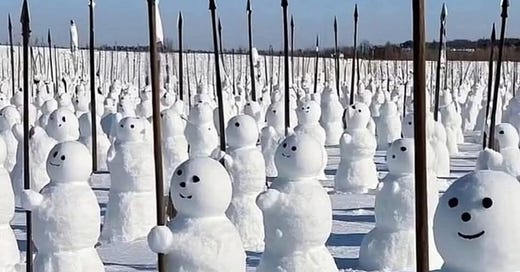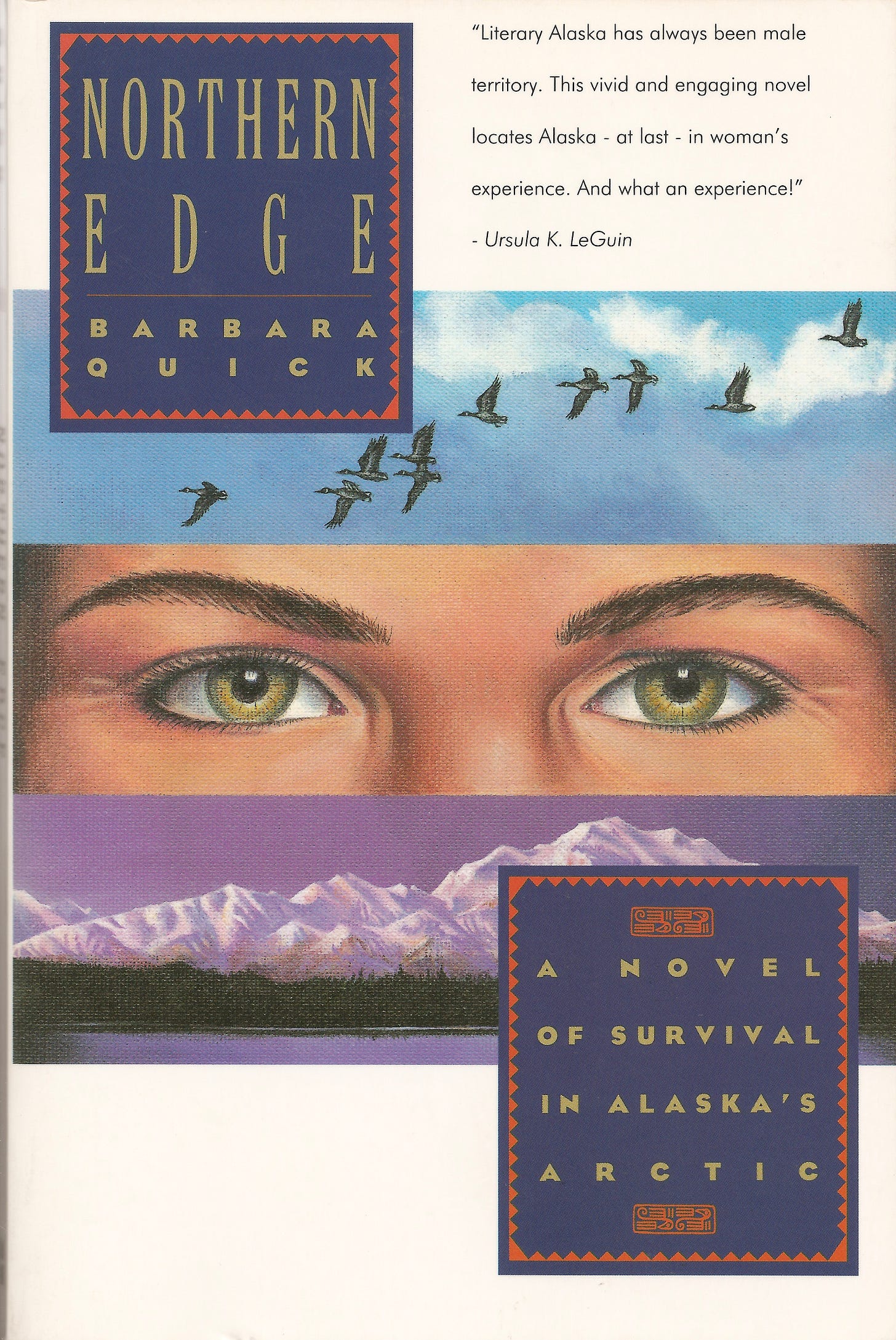According to the weather app on my phone yesterday morning:
17℉ Feels Like: 1℉
Rewind the film 30 years. My first novel, Northern Edge, has been brought out in paperback—new agent, new publisher—five years after its launch by the small and now defunct New York publisher Donald I. Fine, a man I never met but who reputedly referred to women as “broads.”
The book is set in Alaska, based on two field seasons I spent there working with an unforgettable little group of bird biologists and their spouses on a project measuring the breeding productivity of murres and kittiwakes at the edge of the Chukchi Sea, 150 miles north of the Arctic Circle.
It took me ten years and thirteen drafts before I was able to confect a novel from the experience, which had been as exotic for this poet from California as two trips to the moon might have been.
The publisher was committed and generous enough to nominate Northern Edge for a National Book Award—and it got on the debut list for B. Dalton’s Discover: Great New Writer’s Prize.
I didn’t know enough then to celebrate these milestones, which I assumed were just the start of what would be my brilliant career trajectory as a novelist. Money was tight. I didn’t have the funds to go to New York for the awards ceremonies. I just sat back and waited.
And waited.
Crazily, I’d quit my day job after I signed the contract for that very modest advance. My then-agent, the late Eric Ashworth, snagged me a bigger advance for a biography I’d gotten permission to write from the very-much-alive subject, the food writer MFK Fisher, who only said yes (as it turned out) because I looked so much like the daughter with whom she had a totally messed up love-hate relationship. (Note to self: Never do anything like that again!)
I was off and running on what became decades of false starts and persistent penury as a writer: “One of Berkeley’s obscure literary luminaries,” according to the husband of a colleague searching for the right words to describe me.
Five years after Northern Edge was published in cloth, the paperback rights were bought (for a pittance) by a small West Coast imprint of HarperCollins.
Some people in Fairbanks remembered my book—and invited me to be the keynote speaker at something called the Fairbanks Literary Jam Session.
It was the dead of winter, in a place where the mercury has been known to drop to -40℉. I’d only been to Alaska in the summertime.
With my toddler son and his dad, I went to the REI outlet store and found coats, hats, boots and gloves that would see us safely through below-zero weather—something that none of us had ever experienced. Our gear in tow, we boarded a flight to Fairbanks.
The Literary Jam Session was a blast. Not too many writers, it seems, are willing to come to Fairbanks in the wintertime. There were posters all over town, plastered with my photo, announcing the event. I was made to feel like a rock-star.
Steve Howdershell, the amiable musher at Old F.E. Co. Gold Camp, an Old West-style hotel at Chatanika, about 20 minutes north of Fairbanks, where I did the research for my article for the L.A. Times.
As a side-gig, and to help finance our trip, I wrote a travel piece about dog-sledding and submitted it to the L.A. Times. It’s still in the newspaper’s archives. You can press the link above to read it.
At What Point Do We Say ‘No’?
To quote my Norwegian cousin-by-marriage, Jørgen Klaveness (I hope he won’t mind!),
“I wonder why they are saying that Donald Trump wants to ‘buy’ Greenland. When a ‘buyer’ lets you know that he is going to use force if you don't agree to his terms, he is no longer a buyer. He is a robber.
“Trump's justification — that America ‘needs’ Greenland — does not make it any better. It's like the cocaine addict saying that he's going to slice your belly open because he ‘needs’ your money for drugs.
“Does anyone else hear echoes of the old Nazi craving for Lebensraum?”
Loud and clear, Jørgen. I’ve been hearing—and fearing—those echoes since the first time the orange monstrosity occupied the Oval Office.
Photo credit: [I don’t know. If you do, please tell me!]
Has the moment arrived when everyone who loves our country needs to take a stand? If we, as a species, can’t rise to the occasion, Mother Earth may well say “Good riddance” and cast us out.
Let us take as our model all the Dutch who sewed stars of David on their clothing to show their solidarity with those being targeted by the Nazi occupiers. A pacifist by nature, I’m much less drawn to the armed resistance movements of history—and yet I’m grateful to all those brave men, women and children who risked their lives to fight fascism. Is Indivisible a possible avenue for organized resistance today?
I hope I’ll be brave enough to take a stand when push comes to shove here.
Fires are raging in Southern California now. Climate change is speeding up every kind of natural disaster all over our beautiful planet, threatening its very habitability. And very selfish, greedy and short-sighted people in positions of power are joining forces to make things worse.






